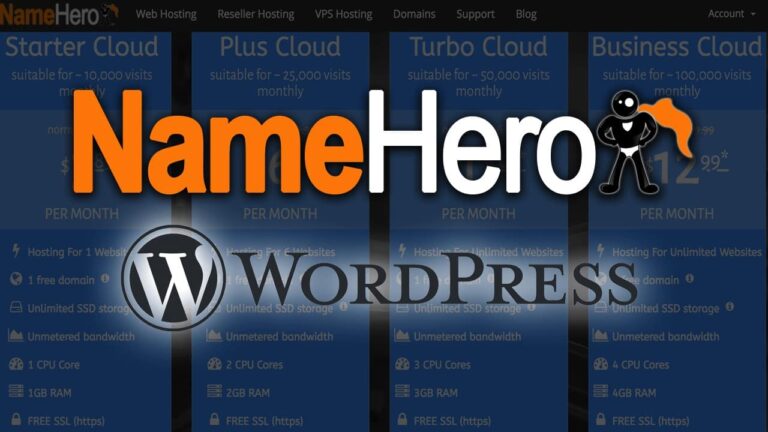Google’s Helpful Content Update Took Money from Bloggers and Gave it to Forums
Over the last few months of 2023, my blog Motofomo.com — where I share personal experience and knowledge with motorcycles — took a huge hit in traffic. It’s down around 50% from its highs of both traffic and revenue, seasonally adjusted.
The reason for this is Google’s “Helpful Content” update (sometimes called the HCU or HC update). The helpful content system is supposed to reward sites where users feel they’ve had a satisfying experience.
In my analysis of what happened to the traffic, I’ve learned that the “Helpful Content” update essentially has taken traffic from niche sites and given it to forums. This is a view supported by other writers.
But I don’t think it makes sense, in many cases (including mine). So below I’ll assess
- What happened with the Helpful Content update
- Why the HCU doesn’t always make sense
- Recovering: What I’ll have to do
Quick Intro: What is the Helpful Content Update?
First, let’s look at what prompted the “Helpful Content” update. I want to admit that I get it, in theory.
In a nutshell, the helpful content system is designed to reward sites that produce genuine, useful, and original information, that users actually want to read. Correspondingly, the update is intended to punish sites that try to game the search engine algorithm for clicks by producing garbage — content that’s misleading, not novel, or maybe even automatically generated.
Using the web in the past few years has been a frustrating experience. You search something simple like “How to clean a water bottle” or “When’s the next iPhone coming out” and get ten heavily SEO-optimised articles that use a lot of language to not even answer the question.
The web is such a frustrating experience at times that people have to work around it by doing things like googling “question question question reddit” to get answers from humans, or just turning to sources like ChatGPT to get a synthesis of what’s out there.
Google provides a way to self-assess content for whether it’s helpful. This is really telling. Some of the questions it asks are:
- Does the main heading or page title provide a descriptive, helpful summary of the content? And does it avoid exaggerating or being shocking in nature? ( I.e., linkbait titles?)
- Does your content promise to answer a question that actually has no answer, such as suggesting there’s a release date for a product, movie, or TV show when one isn’t confirmed? (Have you ever tried googling “iPhone release date” and then read a long article that concludes that it’s unconfirmed?)
- Are you mainly summarizing what others have to say without adding much value? (Is your site a “review roundup?”)
- Did you decide to enter some niche topic area without any real expertise, but instead mainly because you thought you’d get search traffic? (This reminds me of “Tom’s Guide” articles on fitness and health lately…)
All of these reasons for introducing the HCU are legitimate. I, too, want the web to be a better place. But let’s look at the effect that it has had.
The Effect on My Site and Similar Sites
My main website is Motofomo. It’s a blog about motorcycling. I write stuff I’ve experienced and learned.
Ove the last few years, I’ve been very proud of Motofomo’s growth. It became the majority of my income and has been very helpful in sustaining our life.
It’s an extremely personal site. I don’t do any tactics to attract traffic — I don’t do keyword research, competitive research, or whatever. I write about what I want to write, based on what I’ve known and experienced.
Every day, I get comments and emails (sometimes several) complimenting my work. People tell me my site is different because it’s thorough, well-written, and original — so different from many websites that are thinly-veiled repurposing of press releases.
But the Helpful Content Update took half of that away. Here’s what this looks like (look at the orange line):

Ouch! Dropping from ~100K to 35K, that’s a drop of 65%. Some of that is seasonal, of course. But still, following the traffic shape of other years (and of the industry in general in Google Trends), I should be around double that number in traffic.
Note: These are numbers from Ahrefs. They’re actually far lower than my real traffic, but I’m including these as they’re from publicly available information that you could get yourself, and I can compare this data with data for other sites.
This stings. I know that sometimes I make fun listicles (like the “Best Looking Motorcycles of 2023”), but people seem to like ’em, and they’re highly personal in nature — so where’s the harm in that?
Apparently, there’s some harm. Google thinks so, anyway, I think (it’s hard to know what Google thinks).
Anyway, that’s where we’re at. How did some competitor sites do?
The main motorcycle sites — Cycle World, Motorcycle.com, and RideApart — all have held flat. They had some seasonal fluctuations, but they haven’t been affected by the HC update.
Let’s look at some of the smaller but fast-growing players.
Firstly, Motorbiscuit. This is a blog that seemed to appear out of nowhere a couple of years ago. They have a staff of ~20 odd writers and churn out articles at breakneck speed.

Damn! They’ve dropped from about 1.4M monthly views mid-august to 250K, a drop of over 80%. That’s even more than me.
Then there’s Webbikeworld. They’ve been around for ages. They’ve changed ownership and character a bit, and churn out more news / SEO articles in recent years. Google hasn’t looked upon that favourably.

Like me, they’ve lost around 2/3 of their traffic (slightly more, 71%).
Finally, Topspeed.com. A classic SEO spam site, Topspeed (not to be confused with Top Gear) makes tons of articles like “The best 10 bikes for XYZ”. They’re fun reads, but very superficial. Topspeed has lost around 50% of its traffic.

I can’t help but feel a bit of schadenfreude for my big traffic competitors taking traffic hits. But when the same thing happens to me, I don’t feel so great, and have to answer — where have I gone wrong?
Where did the traffic go? Forums
The crazy thing is it’s easy to see just where the traffic has gone: to Reddit and other forums.
The Helpful Content update is designed, after all, to reward user-generated content. The idea is that user-generated content should be made for humans, and not for search engines.
Reddit has seen a massive jump in traffic since September 2023. And it’s still climbing! (I guess the CEO was right when he said in mid-2023 that furore over the API pricing changes would pass.)

Not just Reddit, though. Other forums have been rewarded by the HCU, too. There are lots of motorcycle forums, and they’re mostly small, so here are a couple of big ones.
HD forums is a big forum that focuses on Harley-Davidson motorcycles. Traffic since July 2023 has more than doubled. Seasonally adjusted, I’d say they’re in a 3x better position than before.

Similarly, Netrider (an Australian motorcycle forum) has seen traffic quadruple. Australia’s seasons are reversed, though, so this may also be roughly tripling.

So, Google is rewarding humans writing in HCU. They’re presuming that content written in forums is content written for humans and based on real experience. But I don’t think the logic is entirely sound.
Criticisms of the Impact of the Helpful Content Update
Unsurprisingly, I have some criticisms of the Helpful Content update! It’s not just that my traffic is down. But I criticise it because it punishes what are sometimes rewarding experiences for readers.
About me: I’m a niche writer with an expert point of view. I’ve ridden motorcycles for decades, and have been writing about them for half that time. I’m not an SEO writer, but rather a writer who writes about my direct experiences.
I could have written my content in forums or comment threads on Reddit, but I choose to self-publish to retain ownership over what I write, plus the ability to monetise it myself and however I please.
Motorcycling isn’t my only subject matter of expertise. Other things that I’m an expert on and sometimes write about are:
- Language learning (I write about this on Discover Discomfort) — I’m a hyperpolyglot and have experimented with language learning methods for decades
- Tech operations (e.g. organising warehouses or logistics for e-commerce) — boring topic, but I’ve done it for decades and people pay me a lot to do it
- Google Sheets — I’m definitely in the top 1% of power users and have bent Sheets and Excel to my will for decades
- Writing (especially for humans) — Somewhat ironically, I have a strong set of opinions on how to write in an easy-to-read way for humans (e.g. this article on how to write for the web)
The problem is that I’m not yet, in Google’s eyes, an established authority on most of those topics — including motorcycling. I’ve been writing about them for a relatively brief period (less than a decade). I probably don’t come to mind as an expert on them. So it’s no surprise that I lose out to decades-old publications like Cycle World and RideApart.
But — here’s the crux of my problem — I am an authority when compared to sources like Reddit or forums, who tend to be echo chambers for false beliefs, rumours, or sometimes just brand-loyal bickering. I try to sift through the noise of the internet with research, science, and experience, and to provide an authoritative viewpoint. So when forums rank higher, it just seems wrong a lot of the time.
Path Forward in Recovering from the Helpful Content Update
The good news is that the HCU didn’t totally tank my sites. I still make enough money to survive (though not living in luxury).
After doing a lot of reading — mostly of authoritative sources — here’s what I think I have to do.
Firstly, I need to establish more credibility and authority. This is going to mean:
- Publishing on more channels. I will have to publish video, podcasts, or maybe even a book (not sure on what with regards to motorcycling, though I could definitely publish something about language learning
- Waiting. There’s definitely a time element to authority. The longer I’ve been writing about any topic, the more natural authority I get.
- Auditing my content to make sure it’s consistently human first.
While I write primarily for a human audience, there are definitely times I will write something knowing simply that it’ll rank well. It may be less from human experience — or that experience may not be as obvious.
I’ll create an audit checklist soon (and probably get ChatGPT to help).
I should also mention that some people (e.g. Mike from Niche Twins) think that there’ll be a rollback of this algorithm within the next six months.
I can’t count on that, of course. But I wonder how widely shared that opinion is.







